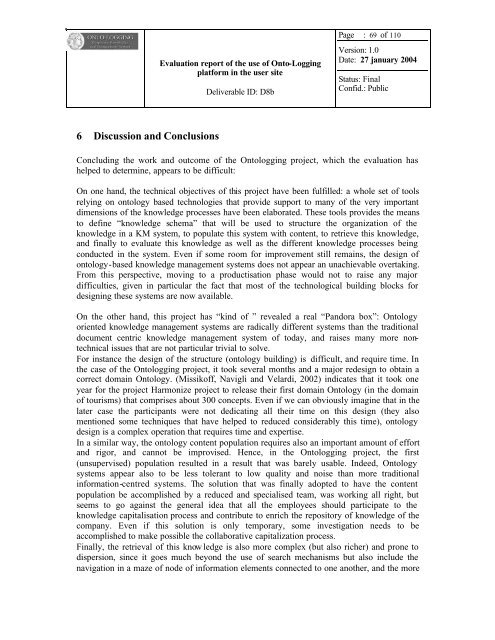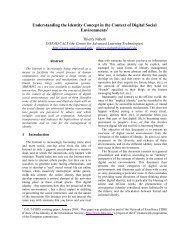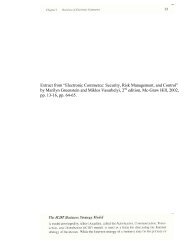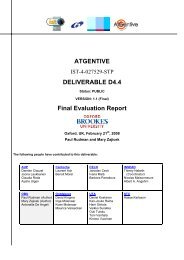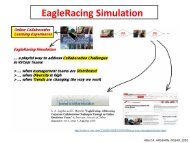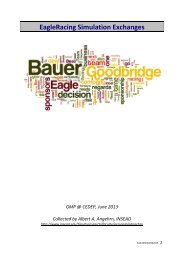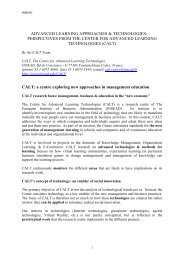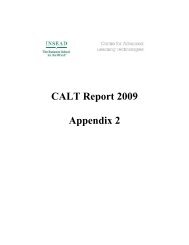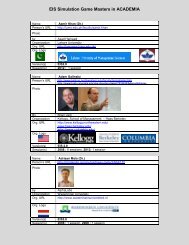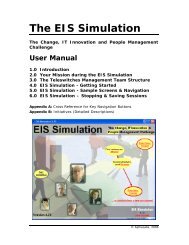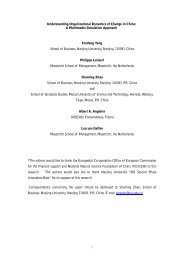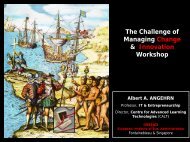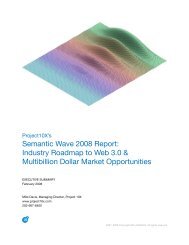pdf 820Kb - INSEAD CALT
pdf 820Kb - INSEAD CALT
pdf 820Kb - INSEAD CALT
Create successful ePaper yourself
Turn your PDF publications into a flip-book with our unique Google optimized e-Paper software.
6 Discussion and Conclusions<br />
Evaluation report of the use of Onto-Logging<br />
platform in the user site<br />
Deliverable ID: D8b<br />
Page : 69 of 110<br />
Version: 1.0<br />
Date: 27 january 2004<br />
Status: Final<br />
Confid.: Public<br />
Concluding the work and outcome of the Ontologging project, which the evaluation has<br />
helped to determine, appears to be difficult:<br />
On one hand, the technical objectives of this project have been fulfilled: a whole set of tools<br />
relying on ontology based technologies that provide support to many of the very important<br />
dimensions of the knowledge processes have been elaborated. These tools provides the means<br />
to define “knowledge schema” that will be used to structure the organization of the<br />
knowledge in a KM system, to populate this system with content, to retrieve this knowledge,<br />
and finally to evaluate this knowledge as well as the different knowledge processes being<br />
conducted in the system. Even if some room for improvement still remains, the design of<br />
ontology-based knowledge management systems does not appear an unachievable overtaking.<br />
From this perspective, moving to a productisation phase would not to raise any major<br />
difficulties, given in particular the fact that most of the technological building blocks for<br />
designing these systems are now available.<br />
On the other hand, this project has “kind of ” revealed a real “Pandora box”: Ontology<br />
oriented knowledge management systems are radically different systems than the traditional<br />
document centric knowledge management system of today, and raises many more nontechnical<br />
issues that are not particular trivial to solve.<br />
For instance the design of the structure (ontology building) is difficult, and require time. In<br />
the case of the Ontologging project, it took several months and a major redesign to obtain a<br />
correct domain Ontology. (Missikoff, Navigli and Velardi, 2002) indicates that it took one<br />
year for the project Harmonize project to release their first domain Ontology (in the domain<br />
of tourisms) that comprises about 300 concepts. Even if we can obviously imagine that in the<br />
later case the participants were not dedicating all their time on this design (they also<br />
mentioned some techniques that have helped to reduced considerably this time), ontology<br />
design is a complex operation that requires time and expertise.<br />
In a similar way, the ontology content population requires also an important amount of effort<br />
and rigor, and cannot be improvised. Hence, in the Ontologging project, the first<br />
(unsupervised) population resulted in a result that was barely usable. Indeed, Ontology<br />
systems appear also to be less tolerant to low quality and noise than more traditional<br />
information-centred systems. The solution that was finally adopted to have the content<br />
population be accomplished by a reduced and specialised team, was working all right, but<br />
seems to go against the general idea that all the employees should participate to the<br />
knowledge capitalisation process and contribute to enrich the repository of knowledge of the<br />
company. Even if this solution is only temporary, some investigation needs to be<br />
accomplished to make possible the collaborative capitalization process.<br />
Finally, the retrieval of this knowledge is also more complex (but also richer) and prone to<br />
dispersion, since it goes much beyond the use of search mechanisms but also include the<br />
navigation in a maze of node of information elements connected to one another, and the more


